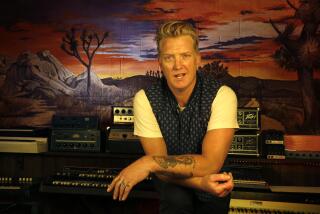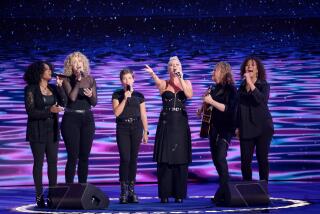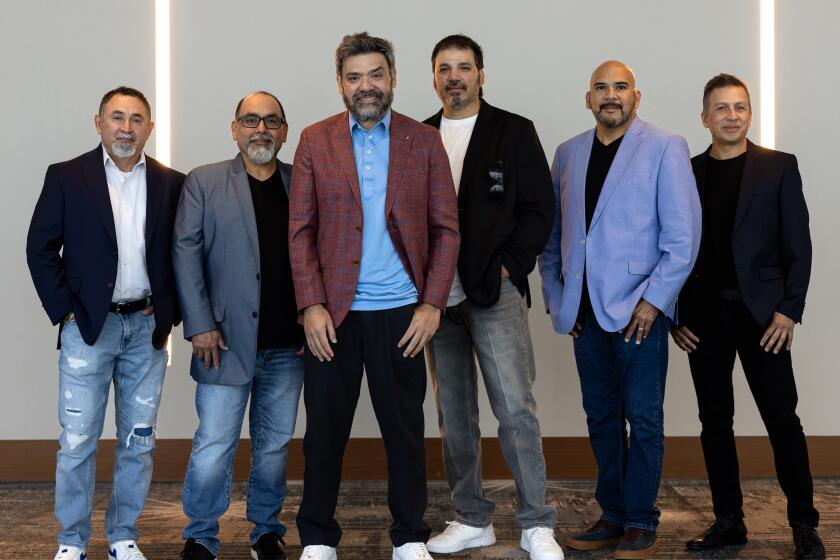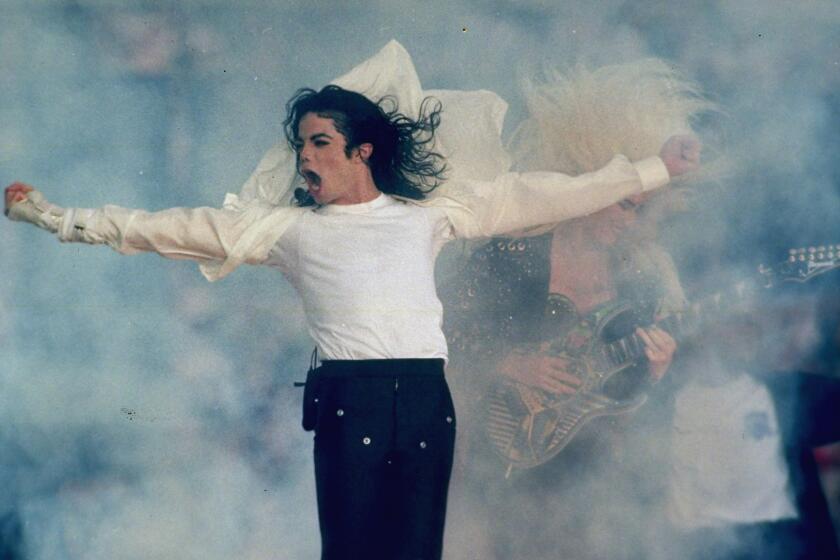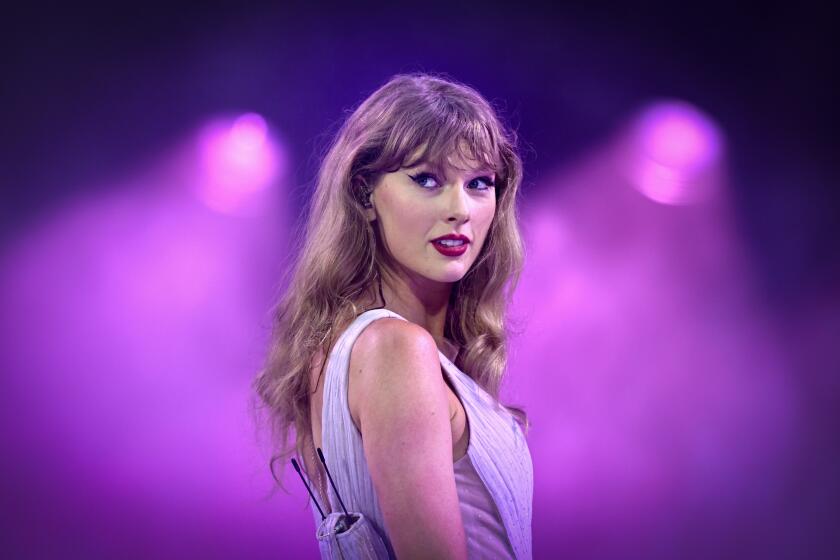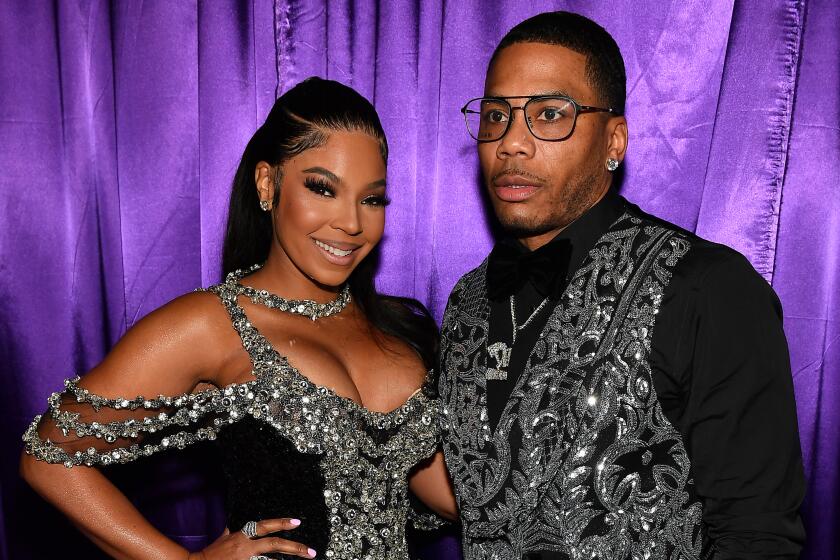POP MUSIC REVIEW : Shocked Doesn’t Retreat; She Still Supplies High Voltage
In switching from her folk-based songs to the seemingly less-confrontational jump-blues pleasures of her current horn-driven “Captain Swing” album, Michelle Shocked has some fans and critics thinking she’s abandoned her radical barricades.
At the Coach House Tuesday night, Shocked’s overwhelming, life-charged 21-song performance made it clear she’s not retreating, just exploring other avenues of liberation. Specifically, her performance asserted, there’s no point in manning the front lines unless you’ve also got your backfield in motion.
Before getting far into her set, the slight, impish singer felt it necessary to justify her recent changes to the audience. She wryly maintained, “It’s no secret that political correctness has been a serious social disease for the last several years. . . . Don’t make the mistakes I did.” In prescribing shaking some booty to Professor Longhair tapes as a cure, she went on to quote radical forbear Emma Goldman: “What good’s a revolution if I can’t dance?”
Shocked’s flat-out-wonderful, dance-happy music needed no justifying manifesto. Like the glory days of ululant “wop mop a lu mop” rock, the wild, unfettered spirit of the singer and her six-piece Captain Swing Revue conveyed all the liberation one could ask for.
With some input from her producer, Pete Anderson (who also helms Dwight Yoakam’s recordings and is a master guitarist in his own right), Shocked has assembled a monstrously good band, with a stylistic purview ranging from swinging Louis Jordan-influenced jump arrangements to free jazz to rampant rockabilly.
Though Shocked’s voice is far from naturally suited to the rigors of a horn-blaring outfit, she pushed her limitations and communicated the crucial life and emotion often missed by more skilled singers.
Sometimes awash in the band’s anarchic-but-tight musical melee, her lyrics remained politically incisive--as with the current album’s “homeless trilogy” of “God Is a Real Estate Developer,” “The Cement Lament” and “Streetcorner Ambassador”--and evocative of the byways of American life. With a rare eye for detail, “(Making the Run to) Gladewater” beautifully delineated adolescent life in a small Texas town.
Throughout that song and others, the band members provided a constant foil for Shocked. In place of the refined fire of Anderson’s playing on the albums, band guitarist Jon Dee Graham delivered wrenching, emotional guitar lines. Keyboardist Skip Edwards ranged from gospel organ hues to Longhair-ed romps on his instrument, while horn players Jim Pollock and Darrell Leonard touched on everything from Sidney Bechet to Don Cherry in their spirited playing.
In expanding her musical scope, Shocked has by no means lost touch with her folk finesse. She did a mid-show solo acoustic turn, playing the haunting, fragile reminiscence “Memories of East Texas,” “5 a.m. in Amsterdam,” an a cappella Steve Goodman anti-war ode, and a mandolin and fiddle instrumental tune, “Jeff Davis,” on which she was joined by her father and brother.
Her closing encore song, the unreleased “Makin’ Jam,” recommended eschewing the “corporate jam factories” because “If you want the best, you’ve got to make your own.”
As the band percolated under her voice, Shocked made her point more explicit: “If there’s one thing that I want you to know, it’s that if I can do this, you can do it too. . . . When it comes down to it, there’s a thing true about music and politics: They’re both too important to be left to professionals like us.”
If that isn’t the basic--though all but subverted lately--message of rock and roll, what is?
Opener John Wesley Harding fared better with the audience than when he first appeared at the Coach House a few months back. He earned an encore call this time, but his performance remained more clever than compelling. One could do worse than to draw on Elvis Costello as a signal influence--along with Harding’s comparatively tortured wordplay, he’s got the Big E’s vocal inflections down to a T--but Harding’s own limited talents couldn’t help looking that much thinner when he so often borrowed Costello’s big suit.
More to Read
The biggest entertainment stories
Get our big stories about Hollywood, film, television, music, arts, culture and more right in your inbox as soon as they publish.
You may occasionally receive promotional content from the Los Angeles Times.

